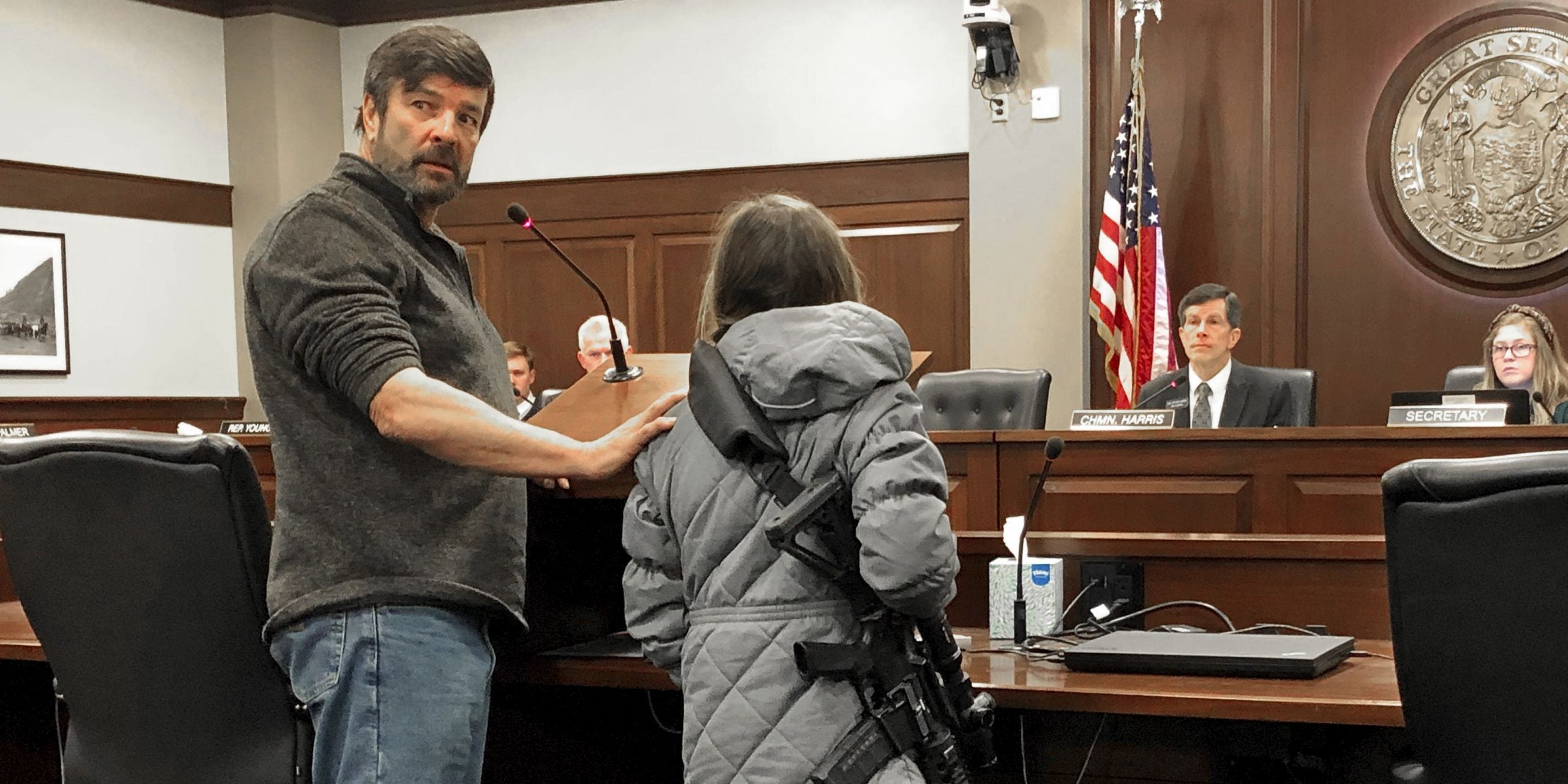Standing up to “open carry” intimidators: Protecting first amendment rights in state capitols
Adam Searing , associate professor of the practice at the McCourt School of Public Policy’s Center for Children and Families , has worked for years with public policy groups around the country who focus on Medicaid and other health coverage and disability programs. As part of their work, these groups meet with public officials in their respective state capitol buildings, moving freely throughout the public areas as law and tradition encourage. Unfortunately, in 2020, as COVID-19 restrictions became politicized, cadres of anti-government groups carrying loaded automatic weapons flaunted COVID-19 protocols and physically intimidated peaceful participants in the legislative process. Searing started to hear about how advocates were afraid to exercise their rights to civic participation. The situation was particularly acute in Idaho, where anti-maskers eventually stormed the legislative chambers in an eerie preamble to the January 6 insurrection.
As Searing wrote, “So, should folks worried about facing heavily armed opponents or catching a deadly disease because no one is following safety protocols stay away from the policymaking process and not make their voices heard? These legislative bodies and other opponents shrug off these barriers to civic participation with the rationale that there isn’t a law requiring legislatures to adopt or enforce measures to make it safe for the public to attend. Actually, not only is there a law that says precisely this — the Americans with Disabilities Act — but also the First Amendment to the United States Constitution guarantees Americans ‘the right of the people… to petition the Government for a redress of grievances.’”
“After this complaint was heard … they made it much easier for remote testimony to be given, provided for live streaming of all committees and sessions, made it easier to submit written testimony and made changes to increase ventilation and encourage mask wearing and social distancing in the legislative building.”
Adam Searing
Seeking assistance for protecting advocates’ rights, Searing contacted his colleagues at the Georgetown University Law School in the Institute for Constitutional Advocacy and Protection (ICAP).
Executive Director and Professor Mary B. McCord and Senior Counsel Annie Owens set about finding a way to help. “They were able to say ‘your instincts are right. This isn’t a good thing,’” notes Searing. “Their engagement had two effects. First, they were able to provide advice, and second, pass along resources.”
When writing letters to legislative leaders asking for enforcement and help to make the environment safer in the state capitol building failed, ICAP joined with local advocates and the Disability Action Center to file a complaint in federal court with local Idaho counsel. The federal judge, although a conservative appointee, showed support for the motion.
According to Searing, “After this complaint was heard and some procedural hurdles were overcome, the folks running the Idaho legislature suddenly became agreeable. They made it much easier for remote testimony to be given, provided for live streaming of all committees and sessions, made it easier to submit written testimony and made changes to increase ventilation and encourage mask-wearing and social distancing in the legislative building.”
“It was nice for me to hand the torch off to incredibly talented people,” recalls Searing. “As in Idaho, I believe other judges wherever they are on the political spectrum will find these arguments persuasive because they go to the heart of our constitutional democracy.”
